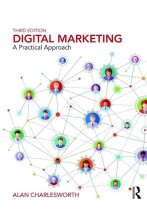What matters is the motive / Immanuel Kant
9 important questions on What matters is the motive / Immanuel Kant
Which two approaches rejected Kant?
Why advocates Kant for approach 2?
Heteronomy: Act according to determinations given outside of me.
-To act freely is not to choose the best means to a given end; it is to choose the end itself, for its own sake.
What means Immanuel Kant respecting human digity?
- Higher grades + faster learning
- Never study anything twice
- 100% sure, 100% understanding
What are 2 ways reason can command the will?
-(UNCONDITIONAL) Categorical imperative; “If the action would be good solely as a means to something else,” Kant writes, “the imperative is hypothetical. can only qualify as an imperative of morality.
What is the rejection of Kant on Utilitarianism?
⁃ Utility fails to reject the rights of each persons to pursue his or her own end
Kant’s categorical imperative tells us to treat everyone with respect, as an end in itself. Isn’t this pretty much the same as the Golden Rule? (“Do unto others as you would have them do unto you.”)
Kant seems to suggest that answering to duty and acting autonomously are one and the same. But how can this be? Acting according to duty means having to obey a law. How can subservience to a law be compatible with freedom?
If autonomy means acting according to a law I give myself, what guarantees that everyone will choose the same moral law? If the categorical imperative is the product of my will, isn’t it likely that different people will come up with different categorical imperatives? Kant seems to think that we will all agree on the same moral law. But how can he be sure that different people won’t reason differently, and arrive at various moral laws?
Kant argues that if morality is more than a matter of prudential calculation, it must take the form of a categorical imperative. But how can we know that morality exists apart from the play of power and interests? Can we ever be sure that we are capable of acting autonomously, with a free will? What if scientists discover (through brain-imaging, for example, or cognitive neuroscience) that we have no free will after all: Would that disprove Kant’s moral philosophy?
Freedom of the will is not the kind of thing that science can prove or disprove. Neither is morality. It’s true that human beings inhabit the realm of nature. Everything we do can be described from a physical or biological point of view.
The question on the page originate from the summary of the following study material:
- A unique study and practice tool
- Never study anything twice again
- Get the grades you hope for
- 100% sure, 100% understanding































